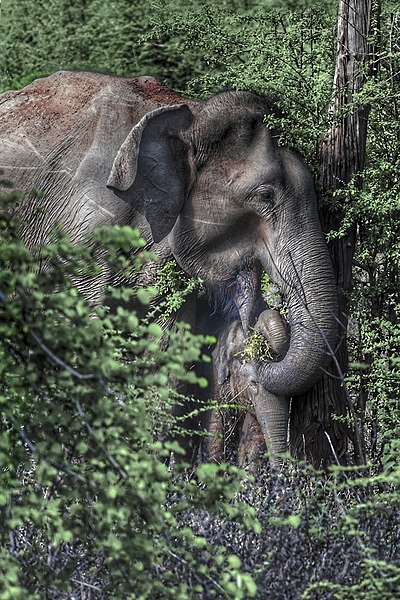In zoology, a folivore is a herbivore that specializes in eating leaves. Mature leaves contain a high proportion of hard-to-digest cellulose, less energy than other types of foods, and often toxic compounds. For this reason, folivorous animals tend to have long digestive tracts and slow metabolisms. Many enlist the help of symbiotic bacteria to release the nutrients in their diet. Additionally, as has been observed in folivorous primates, they exhibit a strong preference for immature leaves which tend to be easier to masticate, are higher in energy and protein, and lower in fibre and poisons than more mature fibrous leaves.
Elephants are an example of a mammalian folivore.
A hoatzin
A brown-throated three-toed sloth
A howler monkey
A herbivore is an animal anatomically and physiologically adapted to eating plant material, for example foliage or marine algae, for the main component of its diet. As a result of their plant diet, herbivorous animals typically have mouthparts adapted to rasping or grinding. Horses and other herbivores have wide flat teeth that are adapted to grinding grass, tree bark, and other tough plant material.
A deer and two fawns feeding on foliage
A sawfly larva feeding on a leaf
Tracks made by terrestrial gastropods with their radulas, scraping green algae from a surface inside a greenhouse
A fossil Viburnum lesquereuxii leaf with evidence of insect herbivory; Dakota Sandstone (Cretaceous) of Ellsworth County, Kansas. Scale bar is 10 mm.








